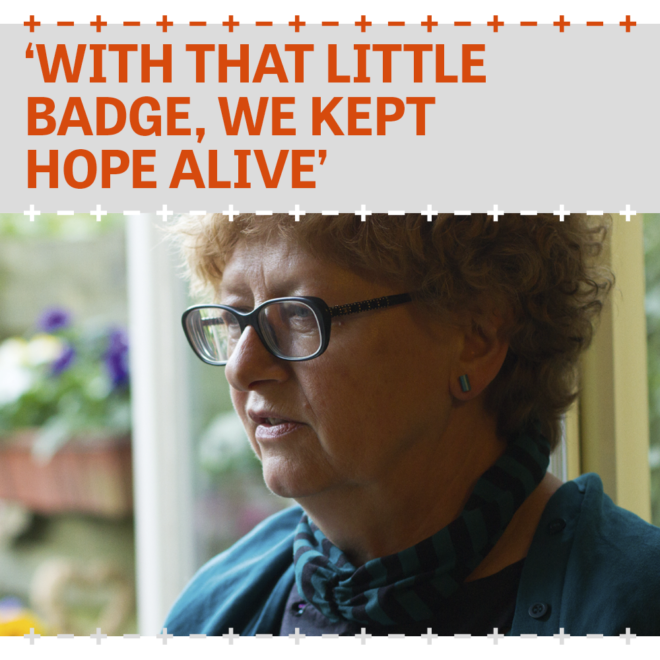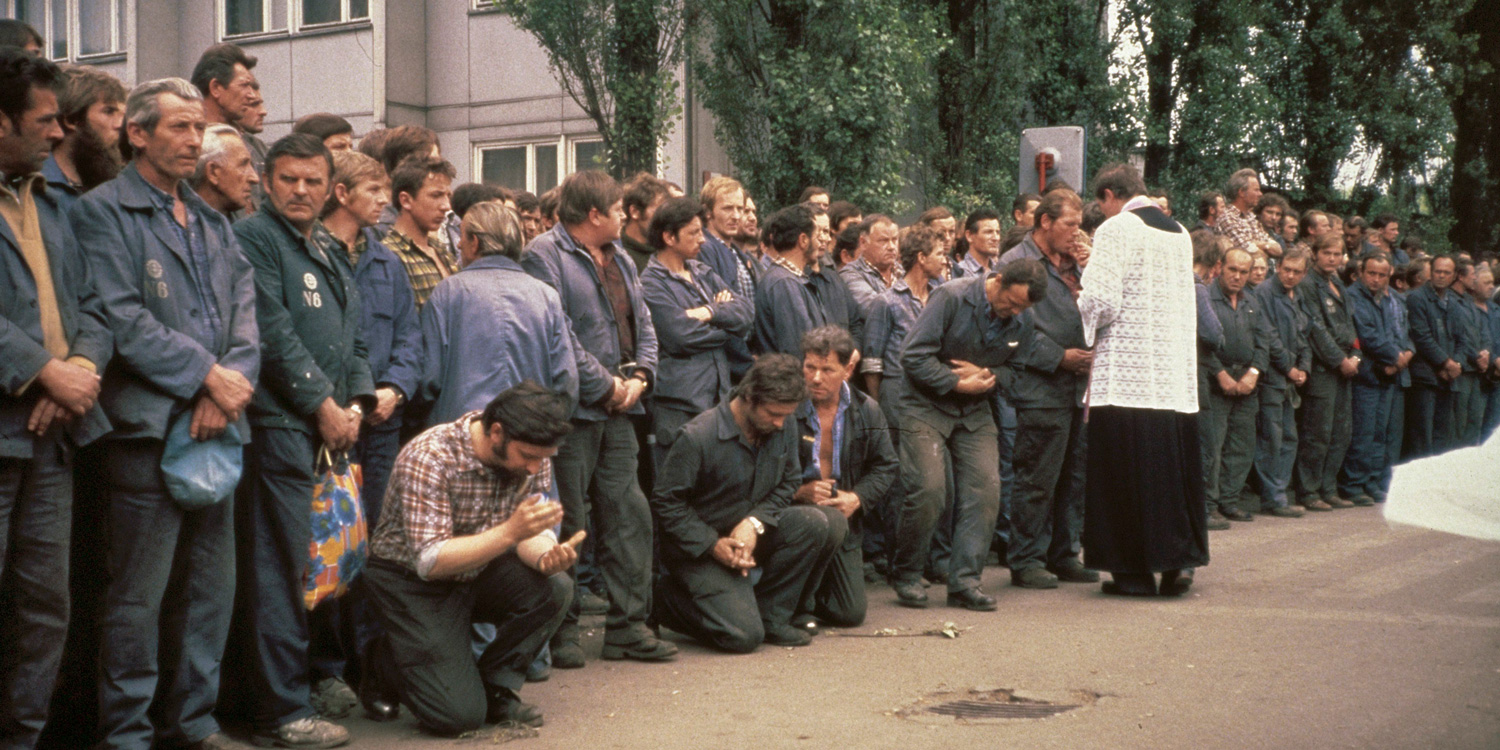Mirka Chojecki-Nukowska (1955), Poland, 1980-1983
“Let me be clear: I was not a hero, I just travelled in their circles. At one of the student parties, I fell in love with the brother of one of the most famous dissidents in Poland. My brother-in-law founded KOR, the Workers’ Defence Committee. From this organisation, the trade union Solidarnosc later arose. With his underground publishing company, my brother-in-law published forbidden books and pamphlets on citizens’ rights.
“My husband helped him by smuggling paper and ink, and by distributing the printed materials. When the trade union Solidarnosc was established, he started working there. It was a euphoric time. The government even met the demands of Solidarnosc. However, after the declaration of martial law, all those changes were reversed and my husband was arrested. The authorities suggested to us to emigrate, just to be rid of us. ‘Absolutely not,’ I said. Poland was our country. They couldn’t make us leave.
“The small resistor was a statement – but a subtle one. We pinned it on as a brooch, as a sign of our resistance. I had a box full of them: a different colour for every dress. Some people wore it openly, but you could quickly hide it under your collar as well. It was dangerous if the wrong person saw it. It could cost you your job, for example. But it was also a relief when you discovered it on someone: then you knew he was on ‘your side’. That’s how we kept hope alive amongst ourselves.
“Eventually, my husband and I decided to leave Poland after all. We had three small children, the stores were empty. Because of his infamous surname, my husband couldn’t find a job. Furthermore, we were increasingly being monitored: there were, for instance, the surprise ‘visits’ of a neighbour who was also a police officer.
“I left the country because of my children. I didn’t think they should grow up in a country of lies, fear and suspicion. I wanted them to become honest, righteous people, but those kinds of people could not keep their head above water in Poland. I cried for seven months, then I left. It felt like my resistance was broken.”
Solidarnosc
On 14 August 1980, a strike started in the Lenin shipyard in Gdansk. It quickly spread to other companies. After two weeks, the leader of the strike, Lech Walesa, announced that the communist government had met the 21 strikers’ demands – an unprecedented victory. It acknowledged the existence of the independent labour union Solidarnosc, only shortly after its foundation. A period of freedom and optimism began. Around 10 million Poles joined Solidarnosc, which emerged as a resistance movement for civil rights. The night of 13 December 1981, the Communist government put an end to it all by imposing martial law. Thousands of union members and activist were imprisoned without a trial or killed.

